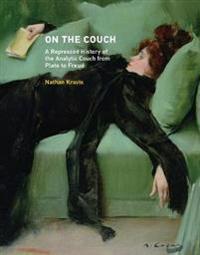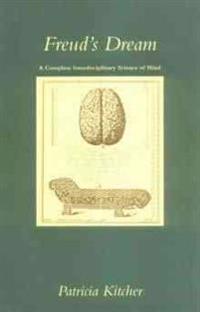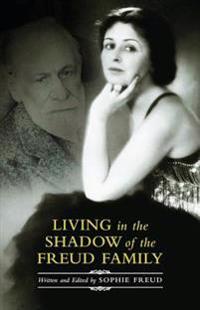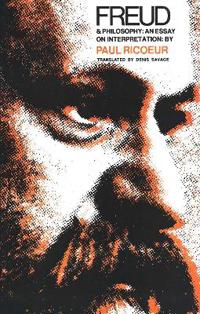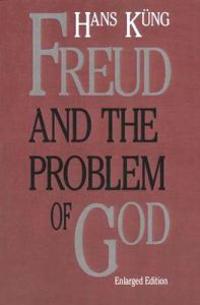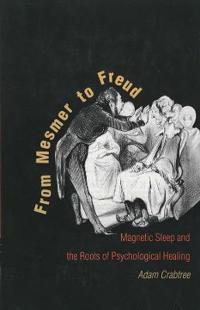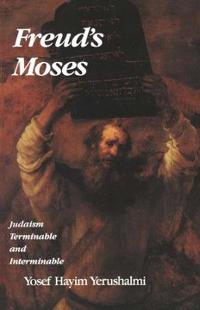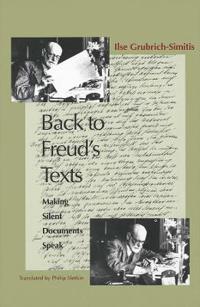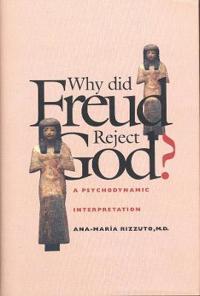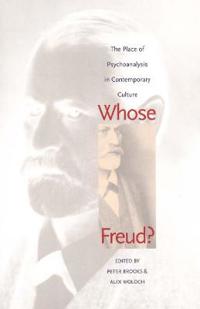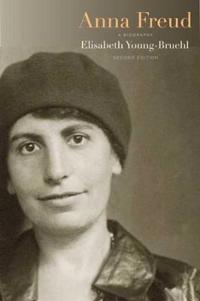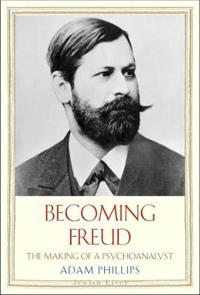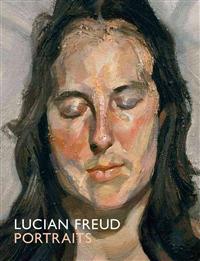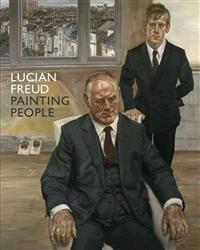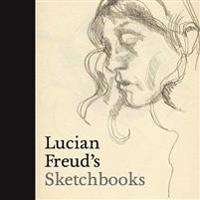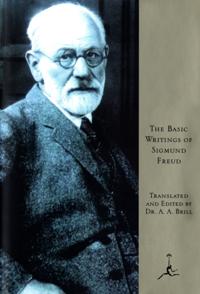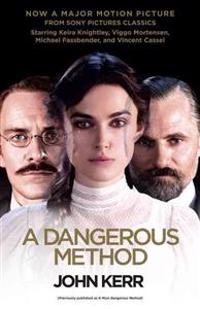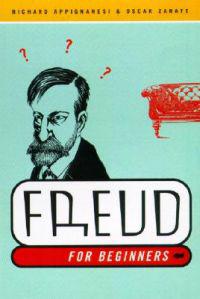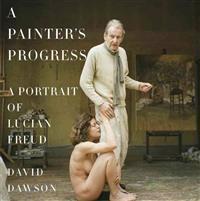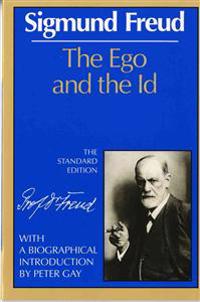Freud's Theory for Beginners: About Dreams, Psychosexual Stages, Id, Ego and Superego
ISBN: 9780244347963 - UTGIVEN: 2017-11Sigmund Freud Popularized the Concept of Psycho Analysis. If you want to learn about his ideas, this book explains it all in simple language: What is Freudian psychoanalysis? Freud 5 psychosexual stages The Id, The Ego And The Superego What Christians Can Learn From Freud Freud and Jung What does Fr[...]
Freud's Mexico: Into the Wilds of Psychoanalysis (Övrig)
avRuben Gallo
ISBN: 9780262014427 - UTGIVEN: 2010-11-16Freud's Mexico is a completely unexpected contribution to Freud studies. Here, Rubn Gallo reveals Freud's previously undisclosed connections to a culture and a psychoanalytic tradition not often associated with him. Freud found a receptive audience among Mexican intellectuals, read Mexican books, co[...]
On the Couch: A Repressed History of the Analytic Couch from Plato to Freud
ISBN: 9780262036610 - UTGIVEN: 2017-09How the couch became an icon of self-knowledge and self-reflection as well as a site for pleasure, transgression, and healing.The peculiar arrangement of the psychoanalyst's office for an analytic session seems inexplicable. The analyst sits in a chair out of sight while the patient lies on a couch [...]
Freud's Dream (Häftad)
avPatricia Kitcher
ISBN: 9780262611152 - UTGIVEN: 1995-11Freud's Dream provides an extended case study of the appeal and potential dangers of the interdisciplinary approach to theory construction now guiding cognitive science as well as a novel interpretation of Freud's own program. Kitcher argues that Freud's grand scheme for psychoanalysis was nothing [...]
Freud Evaluated: The Completed Arc (Övrig)
avMalcolm Macmillan
ISBN: 9780262631716 - UTGIVEN: 1997-01-10foreword by Frederick Crews Psychoanalysis: science or belief system? Since its initial publication this critique of Freud's methods for gathering and evaluating evidence has become a classic in Freud scholarship. Malcolm Macmillan's exhaustive analysis of Freud's personality theory describes the lo[...]
Living in the Shadow of the Freud Family
ISBN: 9780275994150 - UTGIVEN: 2007-04I had to do something to escape Hitler's clutches, writes Esti Freud. Yet she waits with her then-16-year-old daughter, Sophie in Paris until German canons can be heard in the distance before deciding to escape by bicycle across France, as Sophie keeps looking back to see whether German tanks will o[...]
Freud and Philosophy (Häftad)
avPaul Ricoeur
ISBN: 9780300021899 - UTGIVEN: 197707If Paul Ricoeur is correct in seeing the various currents of contemporary philosophy all converging on the problem of a "grand philosophy of language," then the first sixty pages of this absorbing study of Freud may become the rallying point from which future work can begin. This first part of Freud[...]
Freud and the Problem of God: Enlarged Edition (häftad)
ISBN: 9780300047233 - UTGIVEN: 1990-09In this highly acclaimed book, one of the most prominent theologians in the world offers a theological and psychoanalytic assessment of Freud's atheism and of its implications for current psychoanalytic practice. In the original section of the book, now entitled "God--An Infantile Illusion?," Hans K[...]
From Mesmer to Freud: Magnetic Sleep and the Roots of Psychological Healing (Inbunden)
avAdam Crabtree
ISBN: 9780300055887 - UTGIVEN: 1993-09The discovery of magnetic sleep in 1784 marked the beginning of modern psychological healing. It revealed mental activity that was not available to the conscious mind but could affect concious thought and action. This book tells the story of its discovery and its relationship to psychotherapy.[...]
Freud's Moses
ISBN: 9780300057560 - UTGIVEN: 1993-08This remarkable book provides fascinating new insights into Freud's intentions in writing Moses and Monotheism-his only work specifically devoted to a Jewish theme. Yerushalmi presents the work as Freud's psychoanalytic history of the Jews, Judaism, and the Jewish psyche-his attempt, under the shado[...]
Why Did Freud Reject God?: A Psychodynamic Interpretation (Inbunden)
avAna-Maria Rizzuto
ISBN: 9780300075250 - UTGIVEN: 199810In this study, the author reviews and reorganizes data about Freud's development and life circumstances to provide a psychodynamic interpretation of his rejection of God. She contends that Freud's early life made it impossible for him to believe in a provident and caring divine being.[...]
Whose Freud? (Pocket)
avPeter (EDT) Brooks, Alex (EDT) Woloch, Peter (EDT) Brooks
ISBN: 9780300087451 - UTGIVEN: 2000-08One hundred years after the publication of The Interpretation of Dreams, Freud remains the most frequently cited author of our culture-and one of the most controversial. To some he is the presiding genius of modernity, to others the author of its symptomatic illnesses. The current position of psycho[...]
Anna Freud (Häftad)
avElisabeth Young-Bruehl
ISBN: 9780300140231 - UTGIVEN: 200809This edition of Elisabeth Young-Bruehl's definitive biography of pioneering child analyst Anna Freud includes--among other new features--a major retrospective introduction by the author. Praise for the Second Edition: "Young-Bruehl's description of one of the most complex but brilliant lights in psy[...]
Becoming Freud (Inbunden)
avAdam Phillips
ISBN: 9780300158663 - UTGIVEN: 2014-05Becoming Freud is the story of the young Freud - Freud up until the age of fifty - that incorporates all of Freud's many misgivings about the art of biography. Freud invented a psychological treatment that involved the telling and revising of life stories, but he was himself sceptical of the writing[...]
Lucian Freud Portraits (Inbunden)
avSarah Howgate, Michael Auping, John Richardson
ISBN: 9780300182552 - UTGIVEN: 201204Portraits were central to the work of Lucian Freud (1922-2011). Working only from life, the artist claimed, "I could never put anything into a picture that wasn't actually there in front of me." This major retrospective catalogue surveys Freud's portraits across the seven decades of his career. Feat[...]
Lucian Freud: Painting People (Häftad)
avSarah Howgate, David Hockney
ISBN: 9780300182569 - UTGIVEN: 201204This beautifully illustrated book features fifty of Lucian Freud's portraits and figure paintings, offering an excellent introduction to the work of one of the most innovative figurative artists of the 20th century. Arranged chronologically and ranging over seven decades, from the early 1940s to Fre[...]
Becoming Freud
ISBN: 9780300219838 - UTGIVEN: 2016-03Becoming Freud is the story of the young Freud-Freud up until the age of fifty-that incorporates all of Freud's many misgivings about the art of biography. Freud invented a psychological treatment that involved the telling and revising of life stories, but he was himself skeptical of the writing of [...]
Lucian Freud's Sketchbooks
ISBN: 9780300223736 - UTGIVEN: 2016-08Previously unpublished drawings from the private sketchbooks of the pre-eminent British painter offer a new perspective on the artist s personality and artistic genius
This revelatory publication features a selection of beautifully reproduced images from the sketchbooks of Lucian Freud (1922 20[...]Basic Writings of Sigmund Freud
ISBN: 9780307824011 - UTGIVEN: 2015-06This classic edition of The Basic Writings of Sigmund Freud includes complete texts of six works that have profoundly influenced our understanding of human behavior. The Basic Writings of Sigmund Freud is presented here in the translation by Dr. A. A. Brill, who for almost forty years was the sta[...]
A Dangerous Method: The Story of Jung, Freud, and Sabina Spielrein (Häftad)
avJohn Kerr
ISBN: 9780307950277 - UTGIVEN: 201110City of Angels: Or, the Overcoat of Dr. Freud (Inbunden)
avChrista Wolf
ISBN: 9780374269357 - UTGIVEN: 2013-02Three years after the fall of the Berlin Wall, the writer Christa Wolf began to sort through her newly declassified Stasi files. Known for her defiance and outspokenness, Wolf was not especially surprised to discover forty-two volumes of documents collected by the East German secret police. But what[...]
Freud for Beginners (Häftad)
avRichard Appignanesi, Oscar Zarate
ISBN: 9780375714603 - UTGIVEN: 200307A Painter's Progress: A Portrait of Lucian Freud (Inbunden)
avDavid Dawson
ISBN: 9780385354080 - UTGIVEN: 2014-10For nearly twenty years David Dawson was Lucian Freud's assistant, companion, and model. Freud moved in rarefied, powerful circles and was tenacious about protecting his privacy. He also carefully avoided distraction. With few exceptions, he wanted only those he knew well, like the late Bruce Bernar[...]
The Ego and the Id (Pocket)
avSigmund Freud, James Strachey, Peter Gay
ISBN: 9780393001426 - UTGIVEN: 196204Presents Freud's psychoanalytical treatise on the divisions of the mind and their interrelations



